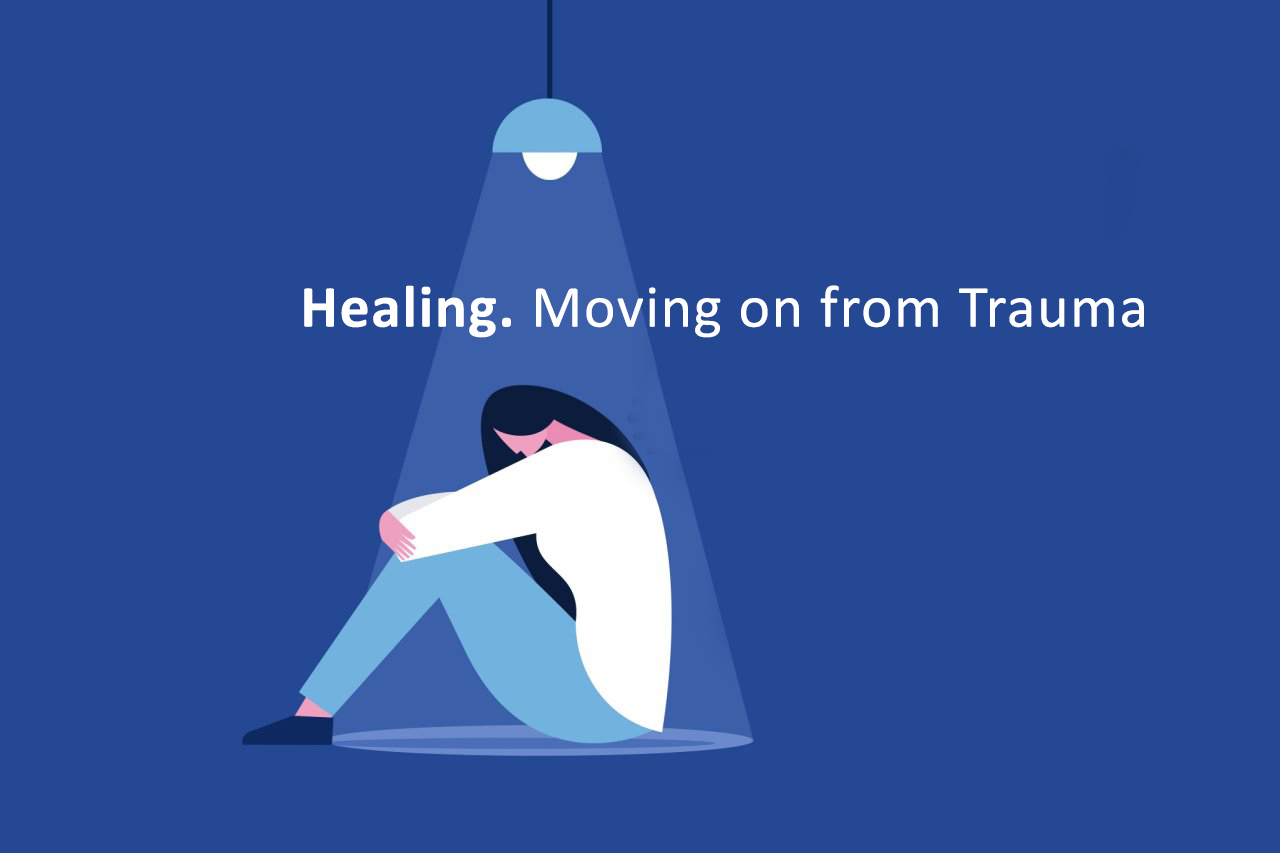Healing. Moving on from Trauma.

Moving on from trauma can be a challenging and deeply personal process, but with time, support, and self-care, it is possible to heal and regain your sense of self and well-being.
Acknowledge and validate your feelings: Recognize that it’s normal to have a range of emotions after experiencing trauma, such as anger, sadness, fear, or guilt. Allow yourself to feel these emotions without judgment or self-blame.
Seek professional help: Consider working with a therapist or counselor experienced in trauma to guide you through the healing process. They can provide valuable tools, coping strategies, and a safe space to process and heal from your trauma.
Practice self-care: Prioritize self-care activities that promote your overall well-being. This could include regular exercise, getting enough sleep, eating a balanced diet, engaging in activities you enjoy, spending time in nature, or practicing relaxation techniques like meditation or deep breathing exercises.
Build a support network: Surround yourself with supportive and understanding individuals who can provide emotional support. This may include friends, family members, support groups, or online communities where you can connect with others who have had similar experiences.
Express your emotions: Find healthy outlets for expressing your emotions, such as journaling, artwork, music, or talking to a trusted friend. Expressing yourself creatively can be therapeutic and help process difficult emotions.
Challenge negative thoughts: Trauma can sometimes lead to negative thought patterns and self-blame. Challenge these thoughts by practicing self-compassion and reminding yourself that the trauma was not your fault. Replace negative thoughts with positive and affirming statements.
Practice relaxation and grounding techniques: Engage in relaxation techniques like deep breathing, progressive muscle relaxation, or guided imagery to reduce anxiety and promote a sense of calm. Grounding techniques, such as focusing on your senses or using grounding objects, can also help bring you back to the present moment during periods of distress.
Set boundaries: Establish clear boundaries to protect your emotional and physical well-being. It’s important to prioritize your needs and only engage in activities or relationships that feel safe and supportive.
Remember, healing from trauma is a personal journey, and it takes time. Be patient with yourself, celebrate small victories, and allow yourself to grieve and heal at your own pace.
If you find that your trauma symptoms are interfering with your daily functioning or quality of life, it’s essential to seek professional help from a mental health provider.
Call 718 313 4357 or go to bcsnygroup.com/appointments to schedule an appointment.

